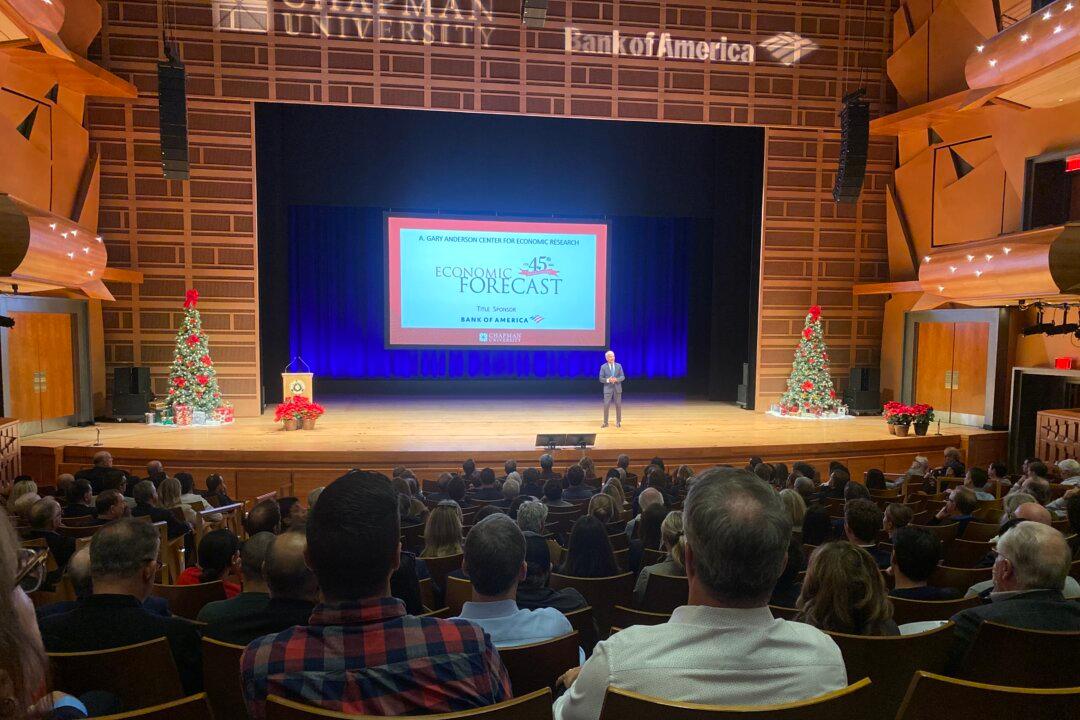ORANGE, Calif.—Leading economic forecasters at Chapman University expect a mild or moderate recession to hit the U.S. possibly by next summer.
Although the economy seems to be recovering from record-high inflation this summer, other signs point to a slowdown, according to Chapman’s President Emeritus Jim Doti.





